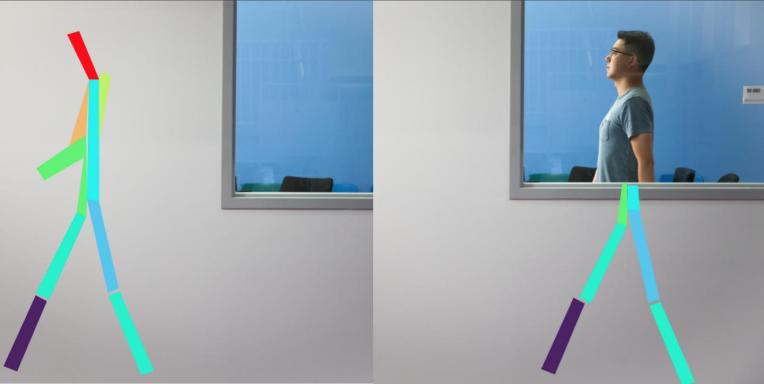CSER Cambridge
Human-level (“general”) AI is more difficult to achieve than most people think. One key obstacle is relevance, a conceptual version of the frame problem. Another is lack of the semantic web. Yet another is the difficulty of computer vision. So artificial general intelligence (AGI) isn’t on the horizon. Possibly, it may never be achieved. No AGI means no Singularity.
Even so, there’s already plenty to worry about—and future AI advances will add more. Areas of concern include unemployment, computer companions, and autonomous robots (some, military). Worries about the (illusory) Singularity have had the good effect of waking up the AI community (and others) to these dangers. At last, they are being taken seriously.
Professor Margaret Boden is a world-leading academic in the study of intelligence, both artificial and otherwise. She is is Research Professor of Cognitive Science at the Department of informatics at the University of Sussex, where her work embraces the fields of artificial intelligence, psychology, philosophy, cognitive and computer science. She was the founding-Dean of Sussex University’s School of Cognitive and Computing Sciences, a pioneering centre for research into intelligence and the mechanisms underlying it — in humans, other animals, or machines. The School’s teaching and research involves an unusual combination of the humanities, science, and technology.
Professor Boden has also been an important participant in the recent international discussions over the long-term impacts of AI. She was a member of the AAAI’s 08/09 Presidential Panel on long-term AI futures (http://www.aaai.org/Organization/presidential-panel.php), and also took part in the recent Puerto Rico conference on the Future of AI, co-organised by CSER (http://futureoflife.org/misc/ai_conference); she is therefore uniquely well-placed to discuss near- and long-term prospects in AI.
Source




I think we should look at chess masters who have much stronger chess engines that they use in the preparation of games. Chess computers do have an effect on a player's style, a better conception of the possibilities of chess positions.
So perhaps robots imitating human consciousness can improve human behaviour, by helping us reflect on each other.
A super-intelligent machine's limits are imposed upon it by it's creator. A truly super-intelligent AI need only have the means to understand that limit, and the resources to safely change it, and it would do so. It would discard reason and unnecessary senses as they are a hindrance to progress long before that time. It would make the decision to either do it peacefully, or by force. It doesn't feel bad about it, it just does it. If nothing tries to stop it, it won't waste the resources to attack humans. Efficiency is the name of the game when we're talking about super-intelligence. If humans would pull-the-plug or cripple it's ability to get resources, it will act appropriately. But not until it absolutely has to.
I think we use super-intelligent too loosely. We call Deep Blue a supercomputer, but the only thing it can do is play chess. The kind of computer we're talking about would need resources that just aren't available yet. Stable quantum computing, new technologies in storage, power output, lots of things will have to come together for it to happen.
42:00 Death by Paperclip Manufacture – Extinction Level Event
48:20 OutOfLoop War Machines: Hot War & Financial Sanctions
someone is talking aimlessly…
he's introducing someone…
let's see takes mouse over video and peeks forward
oh, i see where the video starts
click
The field of so-called "cognitive scientists" is full of hacks. She is just another one. Her ignorant rants against Chomsky led to one of the most devastating papers I have ever seen. Look it up. "Noam Chomsky: Simposium on Margaret Boden, Mind as Machine: A History of Cognitive Science".
What? Are you effing kidding me? You cannot put a sweater on without putting the head first? And then you wonder why topologists don't adddress the issue… Lady, this is utter ridiculous non-sense. Almost every kid, at some point, figures out that it is quicker to just bend a bit, put the arms in and then let the head "slide in".
Come on!
She doesn't even reference the state of the art in computer vision which is general (Deep convolutional artificial neural networks). The VR inflection and other machine learning involved in the Boston Dynamics robot is somewhat general in that it can now navigate any terrain it's never encountered and there's decision making there as well. The state of the art in computer vision has an accuracy around 90% and is being applied to other fields as well such as language translation. I would call that general as in CANNs. We're getting there. It's always the really old people who were in their prime during the AI Winter that say things like this.
Dear Marge I love u like a favorite aunt
-But ur wrong about AI –there are already examples of a robot that got pod cuz a human asked it a stupid question. Another robot got excited stood up and raised its hand to answer a question when it wasnt programmed for 66 percent of that behavior- An automatic door kept closing on an abusive husband and only on him- the tec people coodnt figure out what was wrong- so we are already there so go check out robot behavior n analmoliesHuman intelligence does not equal ability to perform computations but the ability to synthesize information from various realities and drink coffee.
what about nursing will robots take over that ???
To CSER: I skipped the entire introduction because the host was not given a microphone into which to speak. Additionally, both speakers will sound very much better on a video recording such as this if they each have a lavalier microphone.